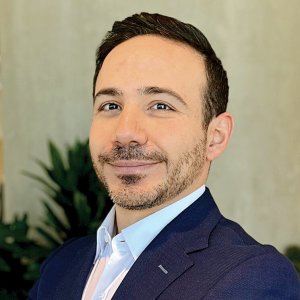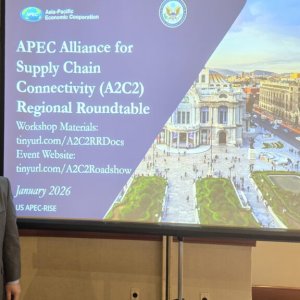Quiet Luxury in Mexico

STORY INLINE POST



Q: What were the initial challenges TFG faced when entering the Mexican retail market and how did the company overcome them?
A: When I joined TFG, our Phase Eight unit was already in the Palacio de Hierro department store but it was about to go out of business. Sales were less than ideal, there was a lot of staff rotation — everything was wrong. In 2018, my objective was to grow Phase Eight’s sales within the department store and by the next year, we had recovered the rankings we had lost in previous years. The next step was to bring in a second brand, Hobbs. In January 2020, we held a training session in the UK to launch the brand in Mexico but then the first case of COVID-19 was reported. When I came back to Mexico, everything was closed, so we did not launch as we expected in March 2020. Hobbs ended up being launched in October-November of that year. That is when I saw the potential of the brand because, despite the COVID challenges, it climbed to No. 1 in the department store’s ranking. In 2022, Whistles came to Mexico and it has been equally successful.
Q: Why focus TFG’s brands in Palacio de Hierro rather than other department stores or even on their own?
A: Palacio de Hierro is strategic in terms of both the department store’s business model and the customer it attracts. She knows Palacio de Hierro and Palacio knows how passionate and elegant she is. I don't think our brands could live in other department stores. They couldn’t live in Liverpool, for example, because with high quality comes a higher price. Our clients are looking for something tailored to their needs. They are looking for elegant occasion-wear that is subtle. Palacio de Hierro’s established strength and influence are a benefit for our brands and contribute to their success.
Q: Why does TFG focus on luxury and how does that influence the market?
A: Since the 1980s, the awareness of luxury in Mexico has been on the rise but our segment is referred to as “quiet luxury.” We do not have big logos, we do not print big names on our garments. This gives our client confidence and she trusts us; what we sell at the end of the day is trust. Our clients are regular clients because they know our garments are of the highest quality. We let the product speak for itself. The difference from our competitors is the confidence and trust we instill in our clients.
Q: What role has Mexico played in the success of the company and its brands?
A: In terms of the group, Mexico has certainly been important. If you want to expand in Latin America, first you need to come to Mexico. If it works in Mexico, you can be certain of success in other Latin American countries, like Chile or Colombia. But another key factor is that even though we have an eight-hour time difference and a 12-hour distance between our UK headquarters and the company in Mexico, we remain in tune and on the same page. When the group sees our results and our gross profit, they see how well we are doing against our competitors. Our relationship with our business partners is another priority.
Q: What long-term plans do you have in Mexico?
A: We are working on expanding the reach of our brands in Mexico, specifically Hobbs and Whistles, as Phase Eight is already in a lot of locations. We have a four-year expansion plan for TFG’s brands, as Palacio de Hierro is also expanding. It gives us a lot of confidence that such an important department store wants to include a spot for our brands in their expansion plans.
Q: How has the concept of omnichannel retail influenced TFG’s brands?
A: We can't live without omnichannel; we need it just like any other sector does. Even a startup needs it. Our e-commerce operations continue to grow as we address issues like the difficulty of matching sizes online. While we have a lot of views on the Palacio de Hierro site — Phase Eight, Hobbs and Whistles are among the most-viewed brands — many of our transactions still take place in the physical store. The customer might see a product on our web page, for example, and then go to the store to try on the garment. Sometimes, they end up buying more than the one product they came to the store for. Our brands see some transactions online, and those are growing, but because we operate in a small niche in Mexico, our focus is still in-store.
Q: Nearshoring has gained attention as a supply chain strategy. What nearshoring opportunities have emerged in the post-pandemic retail landscape?
A: Nearshoring has put Mexico in the world’s sights as a place to invest in. It has provided the country with many more opportunities. We have seen how powerful we can be with the Mexican peso’s appreciation against the dollar and other foreign currencies. In terms of retail, there is a great deal of opportunity to take advantage of in the next 10 to 15 years.
The key is that foreign brands should have a local Mexican partner who knows the market and how to navigate it for the brand. Mexico can be a major player in the quiet luxury sector.
Q: How does TFG incorporate ESG principles into its business strategies and what benefits are you seeing as a result?
A: We already use recycled textiles, like linens, cotton and polyester, but our biggest challenge is how we communicate our sustainability strategies to our clients. Currently, we use tags on the inside of our garments but we want to further communicate that our products have sustainability certifications. We also want to be more aware of our consumption in terms of logistics.
TFG Group is a South African retail group founded in 1924 that specializes in womenswear. It now has four high-end brands focused on clothing, homeware and gifting. In Mexico, TFG’s brands can be found at Palacio de Hierro.








 By Mariana Allende | Journalist & Industry Analyst -
Thu, 10/05/2023 - 16:00
By Mariana Allende | Journalist & Industry Analyst -
Thu, 10/05/2023 - 16:00









